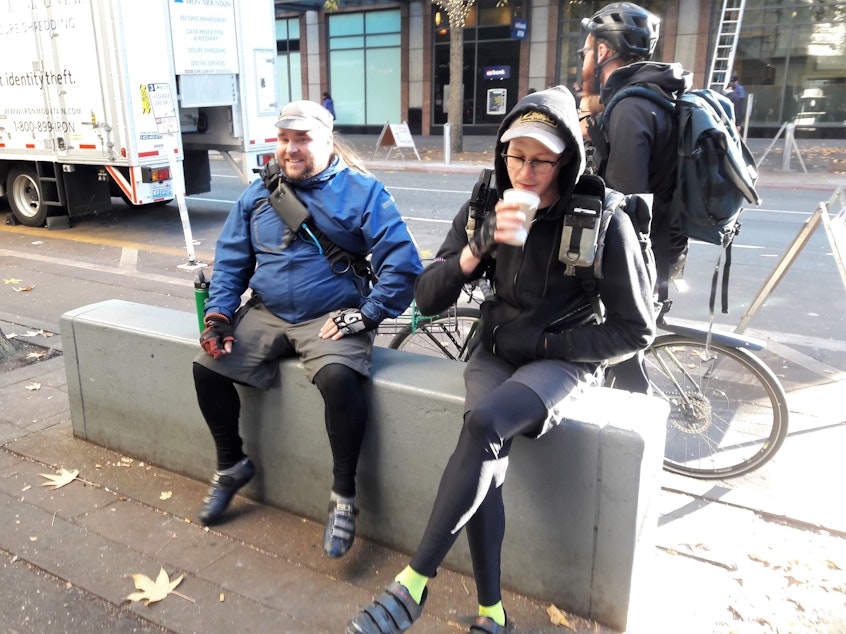Viaduct shutdown pushes some Seattle employers to embrace working from home

On January 11, just after Friday rush hour, workers will close the Alaskan Way Viaduct for the last time. There won’t be a tunnel to replace it for weeks while workers complete tunnel ramps.
Traffic is expected to be a nightmare for anyone trying to get to work. For that reason, some employers are planning alternative working arrangements for their employees for the duration of the shutdown. Others, however, are considering bigger, longer-term changes.
The city of Seattle has been urging employers to try allowing workers to flex their hours or work at home at least part of the week.
Some say that message is resonating.
“I think it’s going to really motivate employers that have offices downtown to let employees work from home if it’s possible,“ said Elizabeth Nagy, who works in the insurance business. “So that’s what I plan on doing."
The University of Washington is also telling workers they can work at home a few days a week with a supervisor's approval.
Sponsored
Other companies are looking well beyond the short-term.
“When we initially looked at it, we approached it as what are we going to do for this three-week period," said Diana Hice, a senior director at Holland America Line, whose offices are in Lower Queen Anne.
“As we researched more, we quickly learned it’s going to be longer than three weeks," Hice said. "It’s going to be all of 2019.”
You could even argue it's going to be for the next five years. The Viaduct closure is the kickoff to a series of construction events, including the Convention Center expansion and a new skyscraper at Rainier Square.
Another change will also affect the flow of surface streets: buses that will soon be transferred from the downtown transit tunnel to the tunnel that replaces the Viaduct.
Sponsored
To keep productivity up, Hice says that employers have to be willing to "try something you haven’t tried before.”
For Holland America, that means a suite of alternative work arrangements, including work-at-home days and new schedules, such as the "9-80," which gives workers an extra day off every two weeks.
Amazon, meanwhile, is giving money to King County Metro for more buses. But this doesn't help everyone.
"We have to be realistic about this, too” said Tim McCall, who supervises the Seattle Department of Transportation's traffic operations center, where cameras see traffic slowdowns and work to get cars moving again.
"We know that there are some people who have to come to the office," McCall said. "We know that there are people who have to sit in traffic. There will be bad traffic.
Sponsored
For everyone's sake, McCall has one request: If you can flex your way out of this impending mobility mess, please do it.



